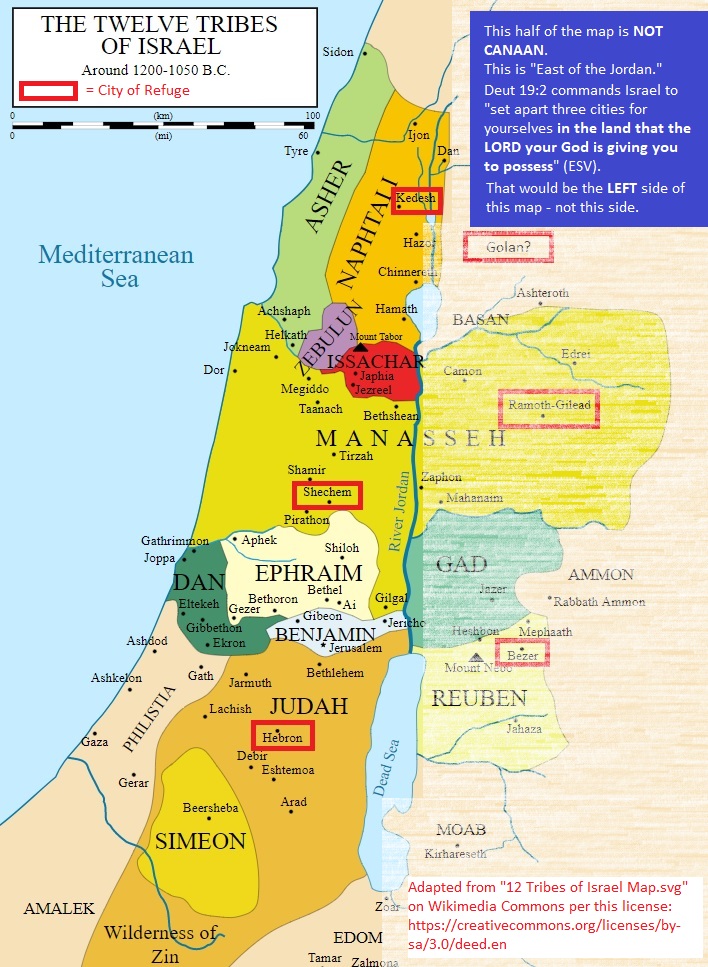Aside from their literal purpose (a safe haven for those wanted for manslaughter), they also have a symbolic meaning as a bellwether.
Why it is important
Through them, we see that Israel never lived up to the greatness that God promised that they could attain if they would be faithful (Deut 19:8-9). I’ll explain this more as we go on.
Literal purpose of the cities
Numbers 35:9-34 explains the purpose.
- If a man is accused of manslaughter (honestly accidental murder), he is to go to one of these six cities while he waits to be tried (v. 15)
- Then “the congregation” is to judge if he is truly innocent (v. 24)
- If he is not actually innocent, then he would be put to death per “these rules” (v. 24), referring to the criteria in vs. 16-21
- But if he is innocent (i.e. he did kill someone but it was an honest accident), then he is to go back to the city of refuge “and he shall live in it until the death of the high priest” (v. 25)
Symbolic meaning
Deuteronomy 19:1-13 explains the other meaning. It never actually says “city of refuge,” but that’s what this is – “set apart three cities… so that any manslayer can flee to them,” vs. 2-3.
OK, now hold on tight. This is going to get crazy.
Let’s start at the end. In Deut 19:7-9, God promises Israel:
“Therefore I command you, You shall set apart three cities. And if the LORD your God enlarges your territory, as he has sworn to your fathers, and gives you all the land that he promised to give to your fathers—provided you are careful to keep all this commandment, which I command you today, by loving the LORD your God and by walking ever in his ways—then you shall add three other cities to these three.”
Summarizing this so far:
- Here are three cities.
- Do good and you will get three more.
Well, they had six cities, right? Num 35:6 says that they were to set aside 48 cities for the Levites (who don’t have their own division of land), and six of those 48 were to be the cities of refuge.
True, but not all six are in Canaan. This is a key point. Only three are in Canaan. The other three are East of the Jordan, in land that was not part of the promise to Abraham. (See the picture in this post.)
Back to Deuteronomy 19. Verses 1-2 specify the three cities as the ones in Canaan (only):
“When the LORD your God cuts off the nations whose land the LORD your God is giving you, and you dispossess them and dwell in their cities and in their houses, you shall set apart three cities for yourselves in the land that the LORD your God is giving you to possess.”
So, the extra three cities in Deut 19:9 would make the total nine, if they were ever faithful to get there.
Theology and doctrine
Did they ever succeed? Not that we know of.
Footnote
* Map (picture) adapted from “12 Tribes of Israel Map.svg” on Wikimedia Commons per this license: https://creativecommons.org/licenses/by-sa/3.0/deed.en


No responses yet